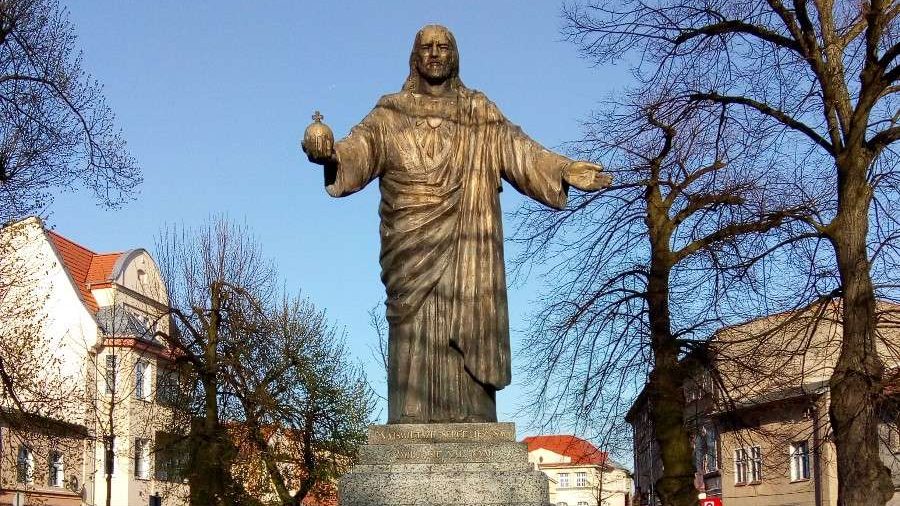Catholics marked the 100th anniversary Monday of the consecration of Poland to the Sacred Heart.
The act took place on July 27, 1920, and was followed three weeks later by a resounding Polish victory over the Red Army known as the “Miracle on the Vistula.”
In the summer of 1920, Soviet forces attempted to cross Poland in order to carry out Vladimir Lenin’s plan to provoke communist revolution in Western Europe. Lenin believed that if the Red Army seized Poland then the Soviets could offer direct support to revolutionaries in Germany.
With the Bolsheviks setting their sights on the Polish capital, Warsaw, Cardinal Edmund Dalbor, the Primate of Poland, joined the country’s bishops at Jasna Góra, the monastery housing an icon of Our Lady of Częstochowa, also known as the Black Madonna. He led an act of consecration of the Polish nation to the Sacred Heart of Jesus.
Weeks later, on August 15, 1920, the Polish army halted the Red Army advance on the outskirts of Warsaw. In the following days General Władysław Sikorski’s 5th Army drove Soviet units away from the city.
Lenin described the battle, in which the Red Army lost around 15,000 men compared to Polish losses of about 4,500, as “an enormous defeat.”
Fr. Paweł Rytel-Andrianik, spokesman of the Polish Bishops’ Conference, said that the act of consecration should not be regarded simply as a historical event.
In a July 27 press statement, he suggested that the consecration offered “a pastoral program for the next decades for millions of Catholics in our homeland.”
He noted that the act was renewed by the Polish bishops in 1951, 1976, and 2011. It was also renewed on March 25 this year when Polish bishops’ conference president Archbishop Stanisław Gądecki entrusted the Church in Poland to the Sacred Heart of Jesus and the Immaculate Heart of Mary amid the coronavirus pandemic.
Rytel-Andrianik recalled that images of the Sacred Heart of Jesus were common in Polish homes, and that retreats and missions promoted the devotion.
“They led people to trust God and His love in difficult times, and this was very much needed in the 20th century,” he said.

